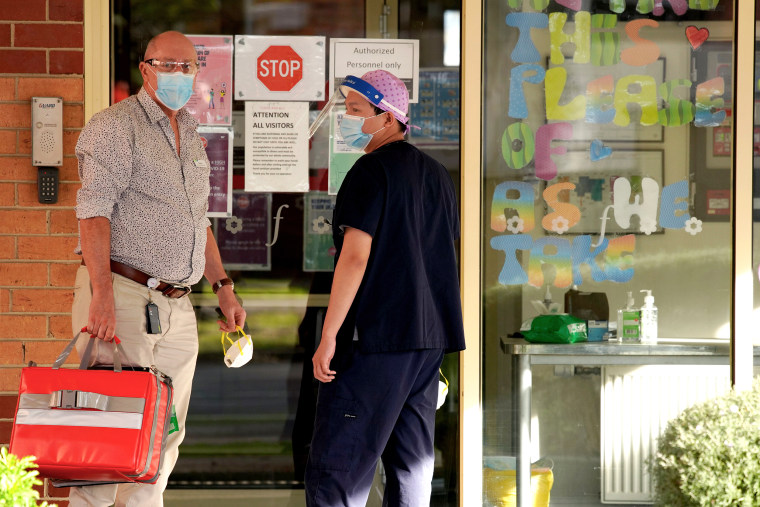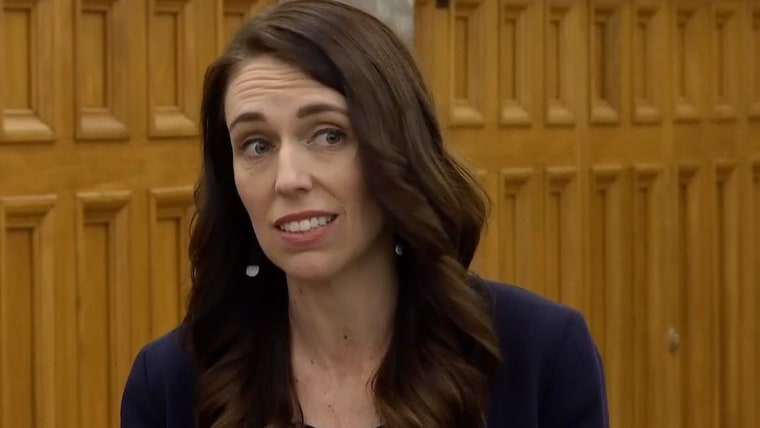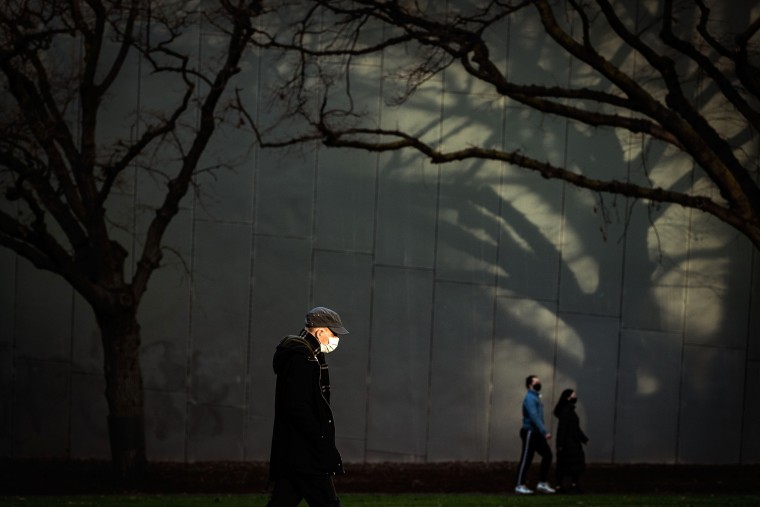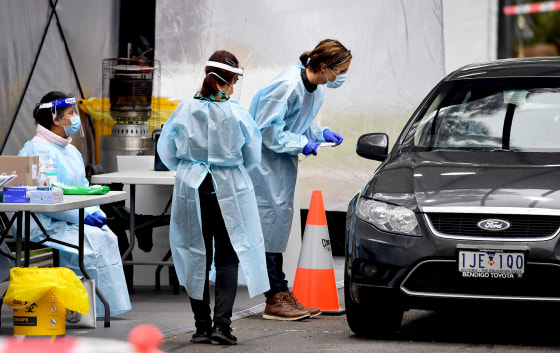They are living under some of the most draconian lockdown restrictions in the world.
A spike in coronavirus cases led authorities in the Australian state of Victoria to declare a state of disaster on Aug. 2, allowing police checkpoints to be put in place and establishing hefty fines for residents and businesses caught breaching the regulations.
And any hope people had of returning to something like normality has been abandoned: On Sunday, lockdown measures were extended for four more weeks.
"I actually have my travel letters on the front seat in my car, and I have my hospital identification on me, because I'm afraid I'm going to get stopped," said Dr. Carmen Brown, 47, adding that similar measures should be introduced in the United States to combat the virus.
Full coverage of the coronavirus outbreak
Brown, an obstetrician from Atlanta who moved to Victoria's state capital, Melbourne, in 2016, said she has to drive out of the city to the rural hospital where she practices, so she is routinely stopped.
"Even more frightening," she said, was the fact that military personnel were monitoring some of the larger checkpoints.
"It just feels surreal. It doesn't feel like this is normal life at all," she said.

Victoria was compelled to take action as it emerged that the majority of Australia's COVID-19 cases had been recorded in Melbourne.
More than 17,000 cases have been reported in the city, while Australia as a whole has recorded almost 24,000, according to the latest data from Johns Hopkins University.
So while much of Australia was enjoying some semblance of normality after pubs, restaurants and other businesses reopened in May, the residents of Victoria can leave their homes only for food, caregiving and essential work. Exercise is permitted once a day within 3 miles of home.
Those breaching the rules face fines of $1,000 or more, and repeat offenders can be taken to court and fined almost $15,000. Companies can be fined more than $70,000 for breaking the rules.

Some, including Nafisa Yussf, 31, have criticized the government's handling of the lockdown.
"A lot of people didn't know it was happening," she said. "There was not even time for people to prepare and to get essential food and medicine."
Yussf, a community engagement liaison officer who works with immigrants in the city, said there had been inadequate messaging and translation services to explain the situation to those who do not speak English.
As a result, she said, some residents of tower blocks in northern Melbourne had been stopped and turned back by police as they tried to leave their homes.
Some of the blocks had already been locked since July following outbreaks in the buildings, meaning more months of restricted living.
"It's been absolutely challenging," she said, adding that such incidents had heightened distrust between the authorities and the communities she serves.
Others were more stoic.
Emma Browne, 33, admitted that she had been depressed during the lockdown, particularly as she had missed her father's 60th and her grandmother's 80th birthdays, but she said the measures would be worth it if they stamped out the virus for good.

"I'm all for whatever we have to do," said Browne, a middle school teacher, adding that everyone was "in it together."
"Let's get it done," she said.
Dr. Michael Mina, an immunologist and epidemiologist at the Harvard T.H. Chan School of Public Health, agreed that lockdowns were not ideal, but he said they did work.
Mina said that while he preferred to roll out rapid testing, lockdowns "should be seen both as an effective avenue but also at this point almost as an avenue of last resort."
Brown, the obstetrician, said the U.S. could learn a lot from Victoria.
She said people in Australia were "really shocked" by the American response to the virus.
"Knowing my family is back home and at risk just really brought it all home," Brown said, adding that the U.S. government should adopt a similarly strict approach.
"It's sad watching your home burn."
